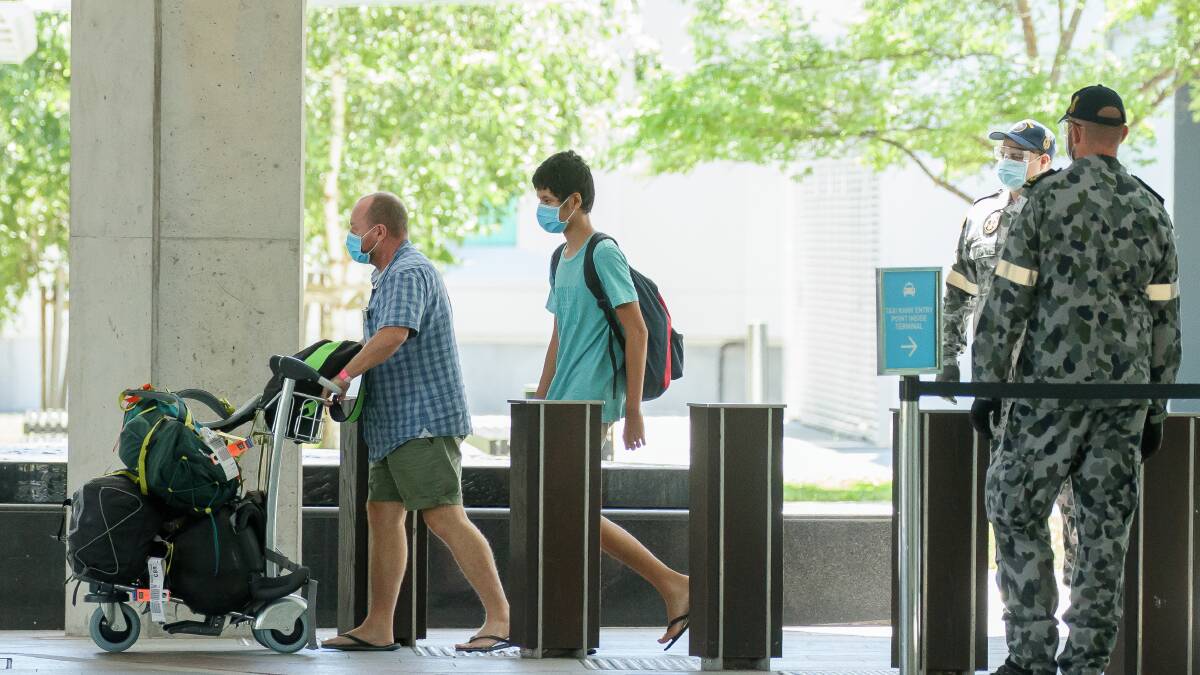Human rights advocates are calling on the federal government to implement stronger laws on the use of home quarantine technology being trialled across the country.
Subscribe now for unlimited access.
or signup to continue reading
South Australian authorities last month announced a smartphone app, which uses facial recognition and geolocation to verify a user's identity and location, would be trialled for approved travellers and residents undertaking home quarantine.
The app sends randomised check-ins in 15-minute intervals using live face recognition and GPS tracking to confirm people home quarantining are in their approved addresses.
Over the border, Western Australian authorities have used a similar app for more than 100,000 returning residents and interstate travellers.
But human rights lawyers and privacy experts are concerned at the lack of regulation governing the technology, calling biometric verification an "extreme measure".
It comes as convenience chain 7-Eleven was rapped over the knuckles by the Information Commissioner on Thursday after it collected customers' facial images and faceprints for their feedback service.
In a joint letter to federal, state and territory health ministers around the country, Digital Rights Watch and the Human Rights Law Centre called on authorities to implement robust safeguards to prevent the technology's misuse.
Evidence of racial bias in algorithms, a lack of privacy protections, a centralised approach and a vague commitment to the retention of data collected by the apps were among the criticisms.
The groups expressed concern protections surrounding the use of the COVIDSafe app, launched in April 2020, had been given the attention it deserved but other technologies introduced since hadn't.
"We are concerned that while much effort was made to ensure the legislation governing the COVIDSafe app had appropriate privacy protections, the same efforts have not been put in place for other technological approaches to managing COVID-19," the letter said.
"Failure to implement proper privacy safeguards creates a significant risk that the social licence for such policies will be undermined.
"Trust in government and digital tools used by government in the context of the pandemic is paramount to the success of these policy approaches."
READ MORE:
The law centre's senior lawyer, Kieran Pender, said while the technology was still in its infancy, and research showed the technology had exhibited racial and gender biases, its use should be carefully considered.
"There is extensive evidence that facial recognition algorithms exhibit racial and gender biases, including by having a higher error rate when recognising individuals with darker skin tones," he said.
"It would be alarming if users were subject to negative consequences - such as police visits to monitor compliance - as a result of discriminatory technology."
Former Australian human rights commissioner Ed Santow last year called for a moratorium on facial recognition in government decision making until protections had been introduced into law.
Mr Santow told The Canberra Times last month Australia remains in limbo after previous attempts to introduce rules were knocked back by privacy experts.
"This is the worst situation of all, because what we're having now is no legislation and also there's no legal framework, there's no kind of red lines about what can and can't happen," he said.
"There's no brake on government or the private sector using this specific technology in ways that can cause harm."
Information Commissioner Angelene Falk said 7-Eleven's improper use of the technology last year was not proportional or necessary.
"Biometric information is unique to an individual and cannot normally be changed," she said on Thursday.
"Entities must carefully consider whether they need to collect this sensitive personal information, and whether the privacy impacts are proportional to achieving the entity's legitimate functions or activities."
A parliamentary committee shut down a government proposal in 2019 to introduce a facial verification database, named "the Capability", for identity-matching services and criminal investigations after concerns it was too far-reaching.
Passports and state drivers licenses have since been uploaded to the Home Affairs-owned database, which is not yet operational until legislation passes parliament.
The federal government has yet to reintroduce a bill for its identity matching program.
Our journalists work hard to provide local, up-to-date news to the community. This is how you can continue to access our trusted content:
- Bookmark canberratimes.com.au
- Download our app
- Make sure you are signed up for our breaking and regular headlines newsletters
- Follow us on Twitter
- Follow us on Instagram



